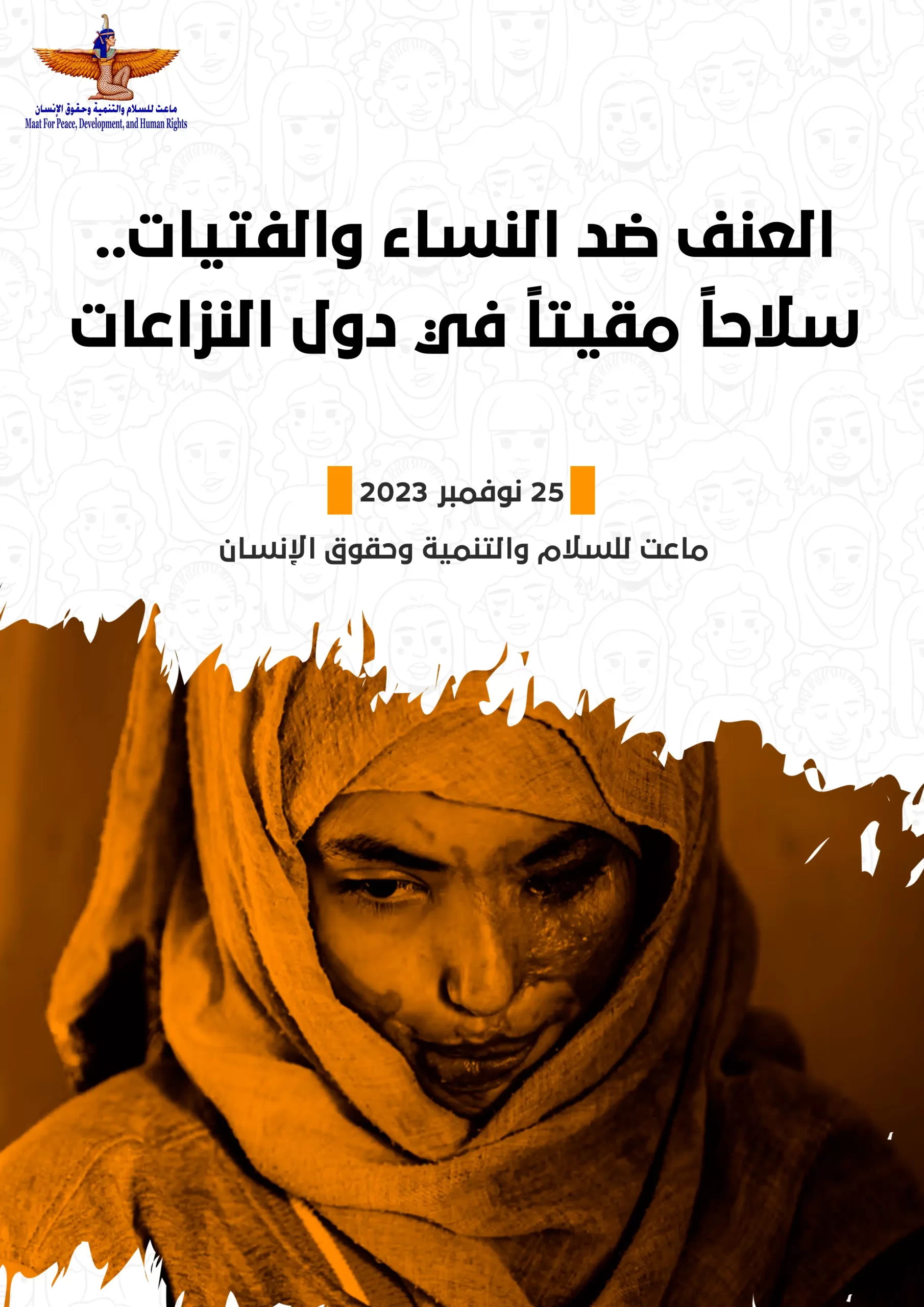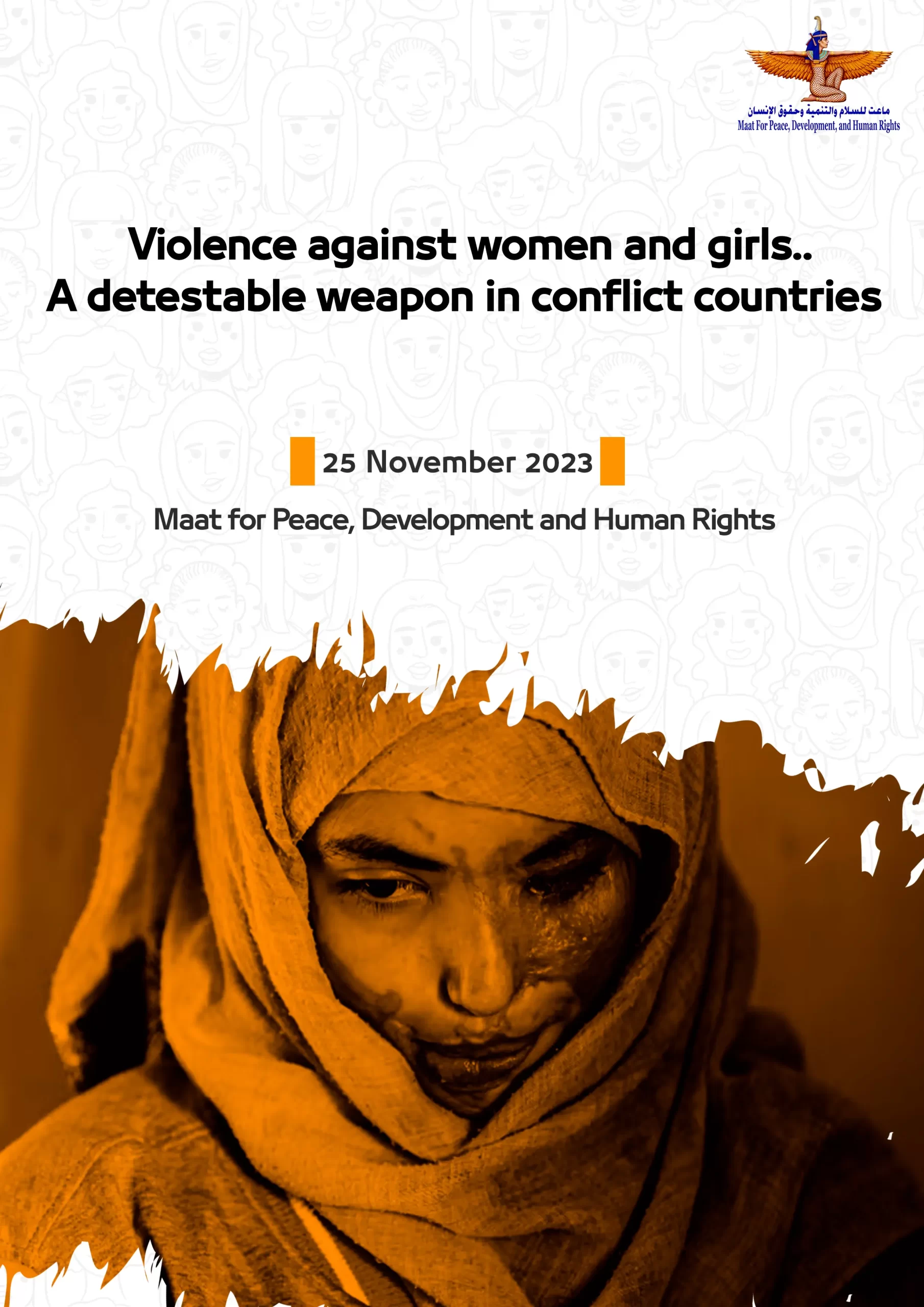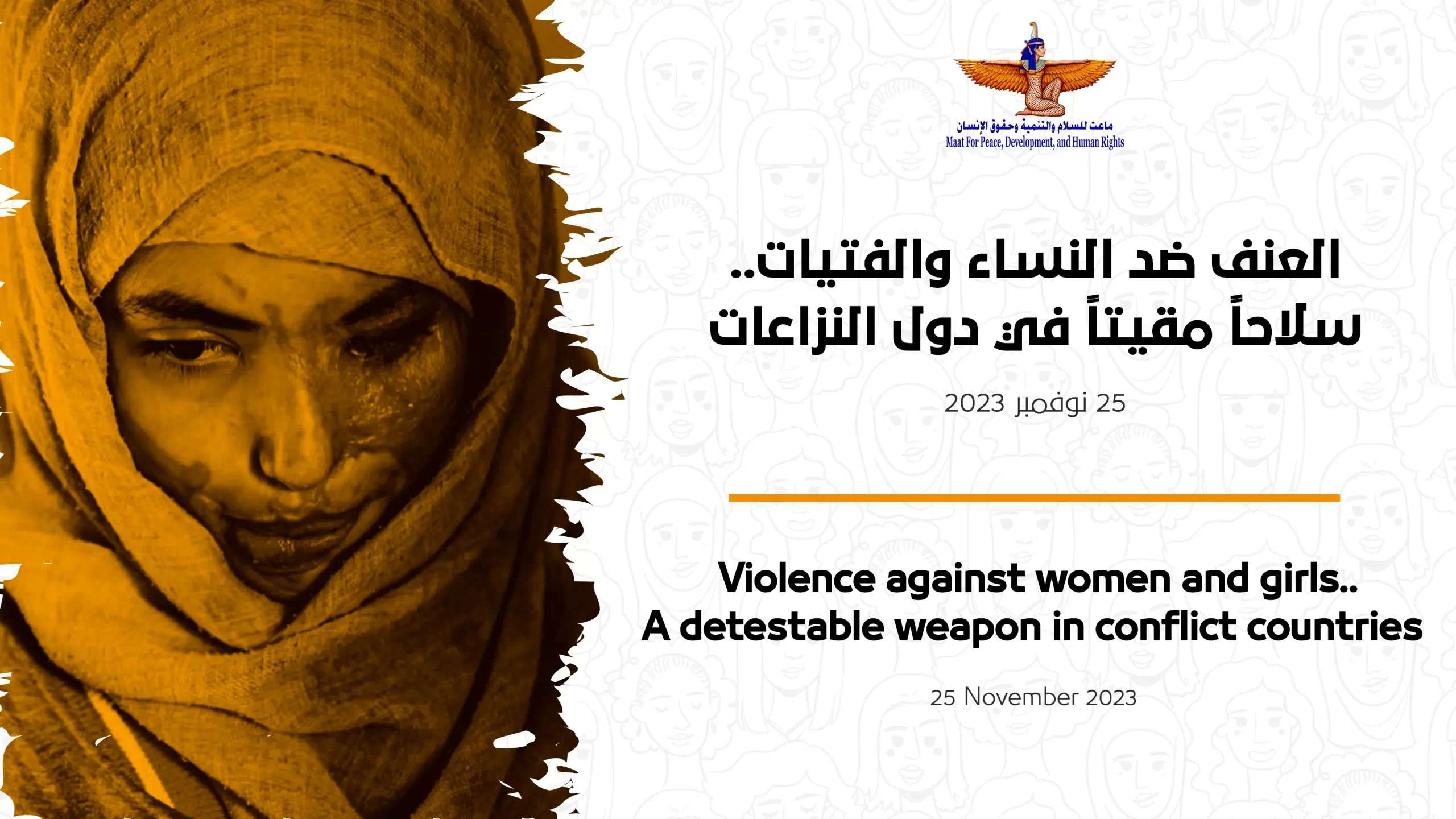On the occasion of the International Day for the Elimination of All Forms of Discrimination against Women, Maat strongly advocates for an end to the abhorrent use of women and girls as weapons in areas affected by armed conflict
Okeil: We urgently call upon Sudan and to implement transitional justice measures and provide redress for women
Huda Imad: We urge the government of Eritrea to review the implementation of laws addressing impunity for crimes against women and girls
Ali Muhammad: We emphasize the need for expediting the implementation of the National Plan for Women, Peace, and Security as outlined in Resolution 1325
Violence against women and girls is a pervasive, enduring, and deeply concerning violation of human rights worldwide. However, it often remains unrecognized due to a climate of impunity, silence, and stigma. Gender-based violence resulting from conflicts in Africa and the Middle East raises serious concerns about the widespread and severe violations faced by women and girls in these regions.
On the sidelines of the International Day for the Elimination of All Forms of Discrimination against Women and Girls, Maat for Peace, Development, and Human Rights released a study titled "Violence against Women and Girls: Detestable Weapon in Countries Affected by Armed Conflict." This study aims to highlight the ongoing violations against women and girls, present extreme forms of violence they face, and propose possible international, regional, and national measures for their protection. The study focuses on several countries in the Arab and African regions that are enduring civil wars and armed conflicts, specifically Sudan, Somalia, Eritrea, and Yemen.
In this regard, Ayman Okeil, an international human rights expert and Chairman of Maat, affirms that violence against women and girls is escalating significantly in conflict and armed conflict settings. While conflicts and armed conflicts have devastating consequences for all civilians, women and girls are disproportionately affected. Okeil cites statistics indicating that the prevalence of violence against women in Africa is higher than the global average, with approximately 44% of African women (more than two out of every five) having experienced gender-based violence, compared to the global rate of approximately 30% according to the United Nations.
The international human rights expert emphasizes the urgent need to strengthen transitional justice mechanisms in countries affected by armed conflicts, civil wars, and political instability. Okeil calls for the immediate and urgent implementation of remedies and transitional justice, particularly in Sudan. He also urges international donors to provide technical support to governments in Africa and the Middle East to integrate development plans aimed at combating and addressing all forms of violence against women.
Likewise, Huda Imad, a researcher in the Sustainable Development Unit at Maat, recommends that the four governments fulfill their obligations under international humanitarian law to protect civilians, including women, in situations of armed conflict. She specifically calls upon the Eritrean government to strengthen penalties for perpetrators of violence against women and to address the issue of impunity within and outside Eritrea.
In a related context, Ali Muhammad, Director of the Research and Studies Unit at Maat, recommends that all four countries expedite the implementation of the National Plan for Women, Peace, and Security in accordance with Resolution 1325. He further suggests the establishment of protection mechanisms against sexual and gender-based violence in Yemen, including supporting the establishment of helplines for survivors of violence to access psychological and social support.

 |
 |











